Thriving Earth Exchange is pleased to announce our October 2021 cohort of Community Science Fellows! They’ll be working with communities from across the United States to launch impactful community science projects. Three projects in this cohort are launched in partnership with the National Park Service, and five are with communities in the Anthropocene Alliance network. Stay tuned for more information about the impactful projects to come from this launch and the communities who lead and inspire them!
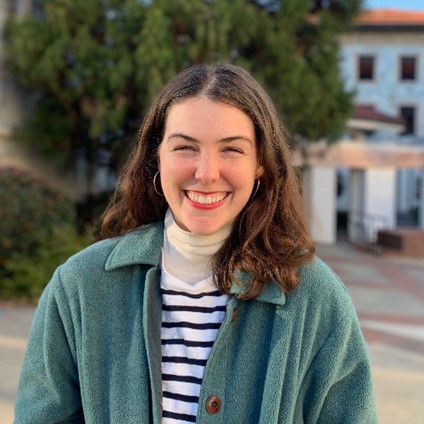
Halle Race Bradshaw (she/her) holds a B.S. and M.S. in Environmental Sciences from Emory University. During her time in Atlanta, she had the opportunity to attend the COP24 conferences in Katowice, Poland, spurring her interest in climate policy and justice. Currently, she works for the American Red Cross as an Engagement Specialist and continues to explore climate justice as a team member of the AmpliFIRE podcast series. She is passionate about community-driven, equitable climate action and looks forward to pursuing this through the fellowship. In her free time, she loves to knit, read in the park, and take too many photos of her cat Archie.
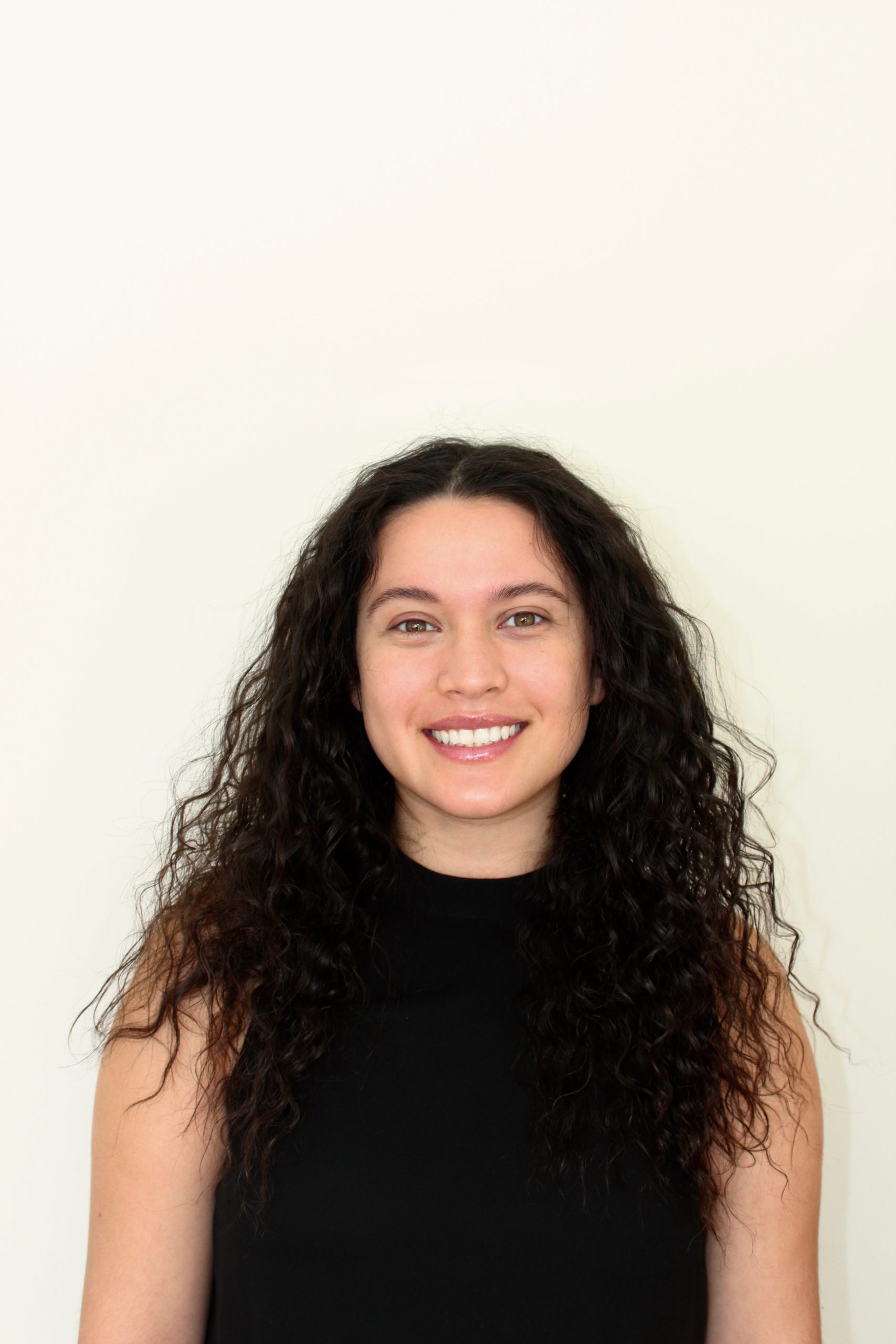
Hasibe Caballero-Gomez (she/her) is a PhD student in Environmental Health Sciences at the University of California Los Angeles. She received her B.S in Chemistry and Environmental Science at Haverford College. Broadly, Hasibe is interested in investigating disproportionate health impacts of pollutants and the built environment in marginalized communities. She is passionate about community-engaged research and capacity-building alongside impacted communities in the public health sphere. Outside of her academic interests Hasibe is invested in issues around migrant rights, environmental justice, and building community power.
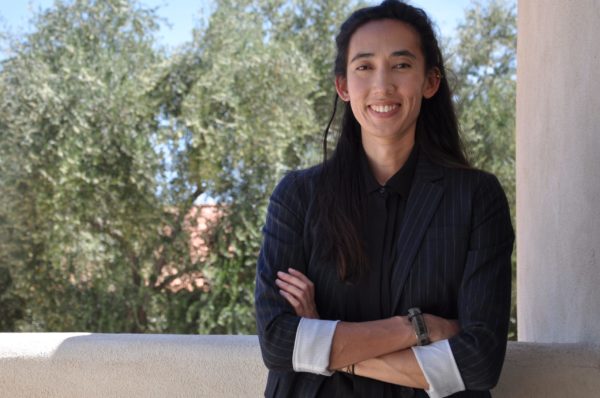
Alex Christensen (she/her) is a coastal scientist studying wetland ecology and hydrology. She received a B.S. in Conservation and Resource Studies from the University of California, Berkeley and a M.S. in Coastal and Ecological Engineering and a Ph.D. in Oceanography and Coastal Sciences from Louisiana State University. She uses hydrodynamic modeling and field and laboratory experiments to study the capacity of wetlands to retain excess nitrogen and improve water quality of shallow coastal ecosystems. She is currently a post-doctoral researcher at NASA’s Jet Propulsion Laboratory studying vegetation dynamics and surface water hydrology of coastal deltas around the world. In her free time, she enjoys climbing, mountain biking, swimming and building things.
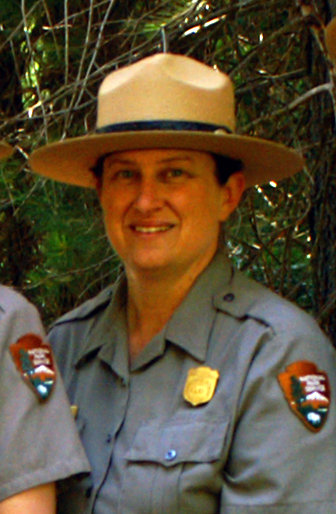
Jennifer Frost is a supervisory interpretive park ranger with the National Park Service (N.P.S.) at Amistad National Recreation Area. Over her federal career, she has worked at 12 different parks in 6 states. She graduated from Texas A&M University – Commerce with a B.S. in Wildlife & Conservation Science and English and has been working toward an M.S. in Resource Interpretation from Stephen F. Austin State University and an M.A. in English from Texas A&M University – Commerce. Jennifer’s role as park ranger is to facilitate emotional and intellectual connections between people and their environment by communicating scientific research and data via engaging and easily attainable programs (such as wildlife walks, campfire programs, astronomy programs, kayak/paddle tours, etc.), social media, photography, informational bulletins, and other media using a variety of techniques such as storytelling, hands-on learning, and facilitated dialogue. Jennifer also provides outreach and education programs to local area schools. Previously, she taught labs and tutored at Napa Valley College in chemistry, physics, geology, geography, geographic information systems, and astronomy, and served as a project manager in the private sector. These experiences continue to influence her programs and activities today. Jennifer currently volunteers with the National Weather Service as a SKYWARN stormspotter. Among other hobbies, Jennifer is a ham radio Amateur Extra (KE0PMM) and a Volunteer Examiner testing ham radio operators for Federal Communications Commission licensure.

Dana Kochnower is passionate about the intersection of climate science, storytelling and civic engagement. She is currently a Vice President in the Social Change Group at Ogilvy working with FEMA to help communities understand their risks and strengthen resilience to natural hazards. Dana previously served as Assistant Director for Land Use and Buildings in the NYC Mayor’s Office of Resiliency where she managed the city’s flood risk awareness, mitigation and insurance portfolio and co-developed Flood Watch, a community science program documenting “sunny day” flooding events and the lived experience of tidal flooding. She has a background in broadcast journalism and holds a master’s degree in Marine Biodiversity and Conservation from Scripps Institution of Oceanography.
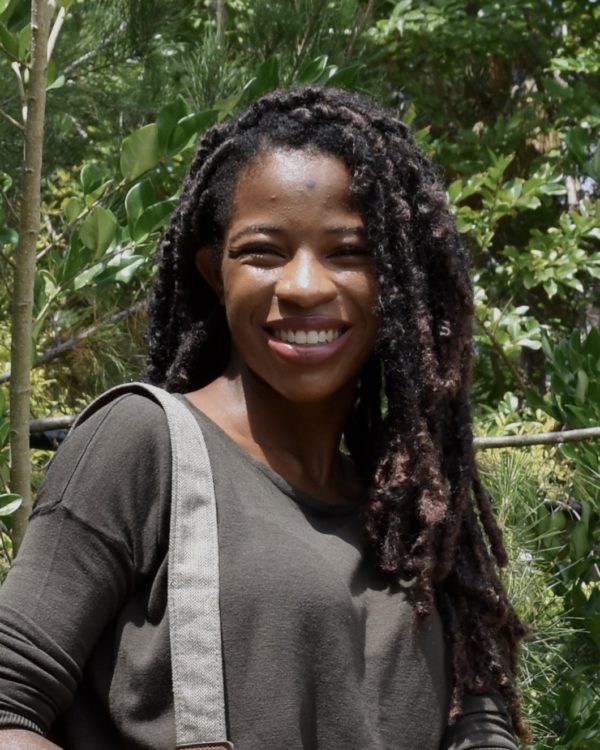
Taylor McKie is a Ph.D. Candidate in Oceanography at Scripps Institution of Oceanography at University of California, San Diego. Taylor studies submesoscale dynamics in the upper ocean and climate change impacts and is advised by Dr. Andrew Lucas and Dr. Jennifer Mackinnon in the Multi-scale Ocean Dynamics Lab. She is also a recipient of the National Science Foundation Graduate Research Fellowship and has attained a B.S. in Environmental Engineering from Georgia Tech. Taylor is active on campus as she advocates for climate action through the Graduate and Professional Student Association Climate Action and Policy Committee at UCSD and supports the needs of fellow Black graduate students as a board member for the Black Graduate and Professional Student Association at UCSD. With a passion for people and the environment, Taylor hopes to pursue a career in supporting communities through climate change adaptation and increasing their resiliency through policy and advocacy.
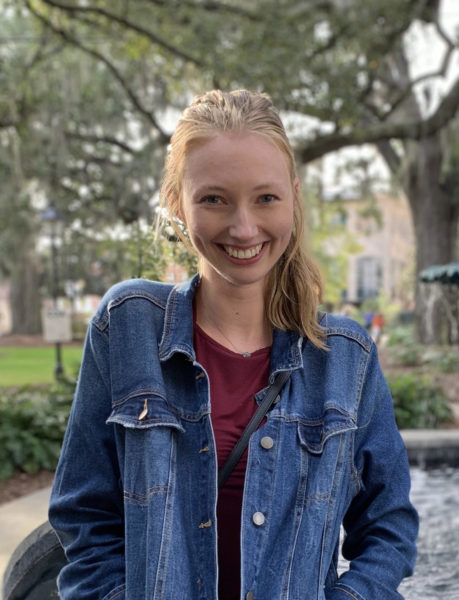
Lara Noren is a science communicator and educator who is particularly interested in building inclusive and community responsive solutions to climate change and other human induced environmental changes. She is excited to join the Thriving Earth Exchange team to support communities as they utilize science based programs to pursue community driven goals. Lara received a BS in marine biology from the University of North Carolina Wilmington, and participated in ocean centric community outreach and science communication during and after her collegiate career. Currently, she works at the Smithsonian National Museum of Natural History as an ocean and climate change specialist, fostering connections to the natural world for the general public. In her spare time Lara enjoys biking, roller blading, spending time with friends, and checking out new museum exhibits!
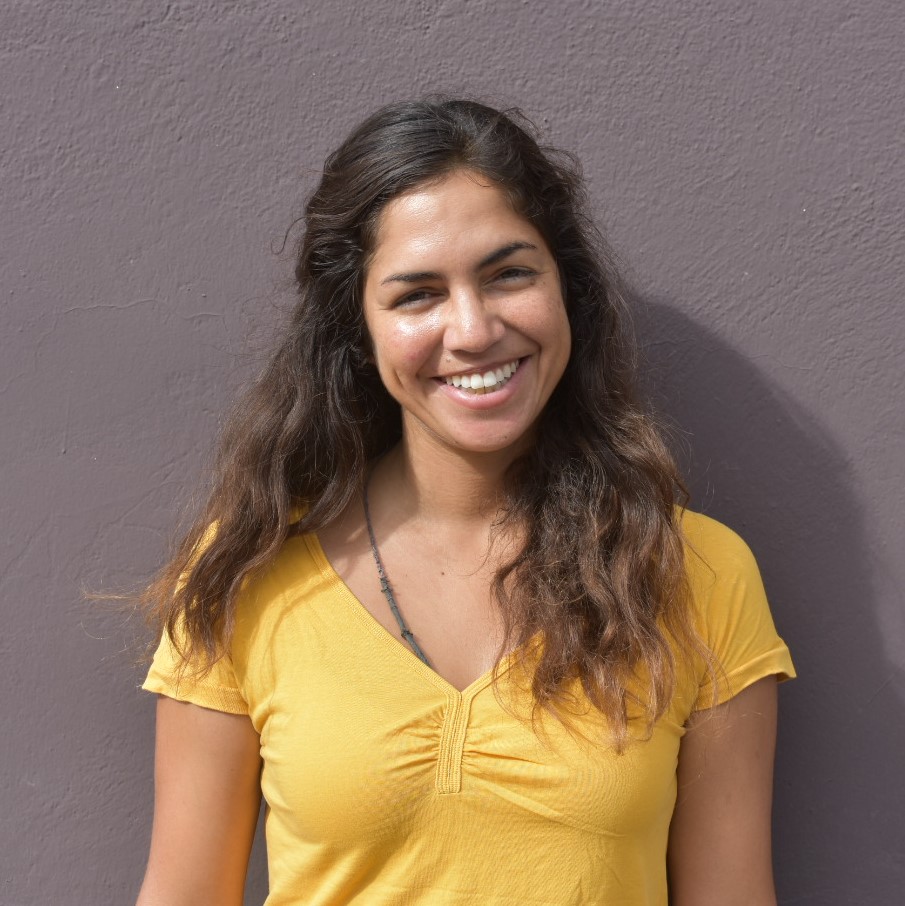
Elena Perez recognizes the inextricable links between people and the environment. Her work spans sectors, from marine research and community education, to environmental justice and climate resilience work with the State of California. She was awarded a Fulbright research grant where she partnered with local institutions, nonprofit organizations, and stakeholders to promote more inclusive conservation efforts in the Galápagos. In her current role as Ocean Resilience Lead at the World Economic Forum she works to strengthen the connections between ocean resilience and human resilience. Elena obtained an interdisciplinary master’s in marine conservation from the Scripps Institution of Oceanography. She first discovered the power of storytelling and the value of sharing perspectives as an American Literature major at UCLA, and she continues to see great value in learning from and understanding diverse perspectives in order to create more robust, comprehensive, and practical solutions to tackle global and local challenges together.
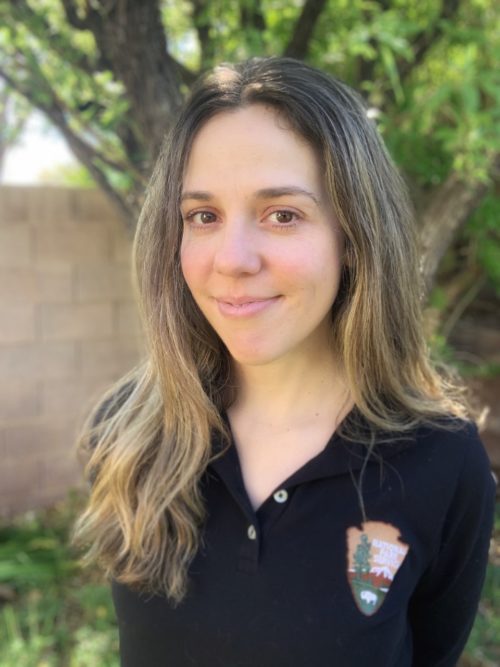
Ashley Pipkin works for the Natural Sounds and Night Skies Division of the National Park Service (NPS). She works closely with parks throughout the Pacific West Region of the NPS to provide technical assistance, protect and better understand the acoustic environment and natural night sky resources. Sharing the values of these resources with the public and communicating science is a vital part of her work. Most recently she has been contributing time to the development of the Basin and Range Dark Sky Cooperative, a community of practice that works towards natural night sky protection in the Basin and Range province. She understands that the best way to protect park resources is working with communities and sharing knowledge.
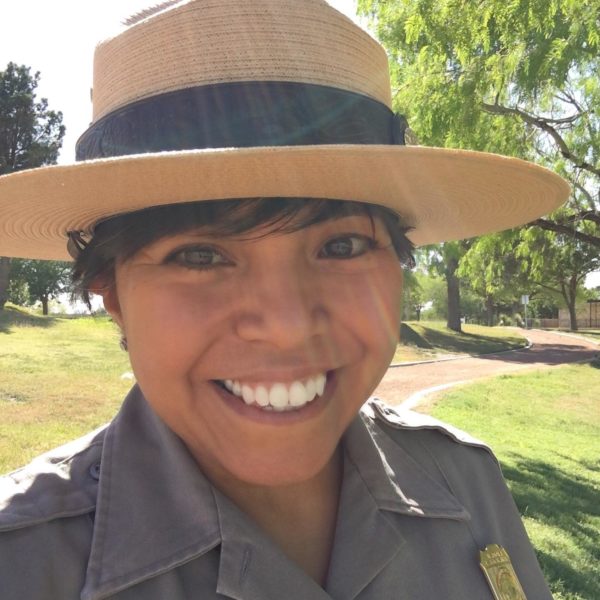
Claudia Santiago completed an M.S. in Geophysics and an M.A. in Rhetoric from the University of Texas at El Paso (UTEP). Currently, she is a Biological Science Technician and Citizen Science Coordinator at Congaree National Park (CONG). Claudia’s academic background has led her to work on a number of projects. She identified organic molecules in the external galaxy MKN 231 as part of her research for the Ronald E. McNair Achievement Program. At the University of California San Diego Summer Training Academy for Research in Science, she predicted the magnification of the Type Ia supernova SN 1997ff. As part of The Research in Industrial Projects for Students (RIPS) program at the University of California, Los Angeles, she helped to visualize invariant manifolds, as 2D surfaces in a 3D space. She searched for landing sites on the Moon where regolith samples can be collected as an Exploration Science Summer Intern at The Lunar and Planetary Institute (LPI’s) and NASA. As a member of the Roshan Lal Chandna Just Citizen Scholars Leadership Program at UTEP, she strengthened her leadership and communication skills while interacting with social activists and implementing activities related to social justice work in the border community of El Paso, TX. Claudia’s thesis work in rhetoric involved interviewing scientists in agriculture, urban systems, groundwater systems, desert ecology, and traditional ecological knowledge and examining how their values and knowledge intersected to develop a video game focused on water issues in the El Paso-Rio Grande area. After graduate school, while participating in The Geoscientists-in-the-Parks (GIP) program at Congaree National Park (CONG), she promoted Science, Technology, Engineering, the Arts and Mathematics (STEAM) literacy among 3rd graders by guiding them through activities related to habitats, soils, and landforms of bottomland forest. During her National Park Service (NPS) Academy internship, she collaborated with Chamizal National Memorial (CHAM) and journalists to organize an outreach plan and media strategies. She has worked with the interpretative program at CHAM, Gila Cliff Dwellings National Monument, and Washita Battlefield National Historic Site. In her current position, she helps to diversify contributions to science by translating written park materials into Spanish, assisting with science communication videos, and recruiting diverse volunteers for firefly observations and the NPS Dragonfly Mercury Project. Claudia aspires to use her experiences across disciplines and parks to promote the contribution of underrepresented communities to science, and to facilitate science literacy and engagement that advances communities’ objectives.
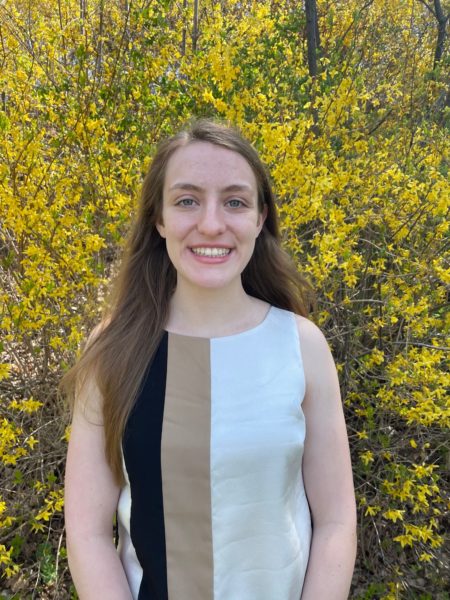
Sydney Shelton is a first year PhD student in geology at the University of Maryland. She is planning to research how urbanization and freshwater salinization impact water quality, particularly the aquatic carbon cycle. Sydney completed a B.S. in Environmental Science and Sustainability Studies at Rensselaer Polytechnic Institute, where she completed a senior thesis focused on how researchers can overcome academic hurdles and participate in community science. In her free time, she enjoys hiking, biking, and travelling to any location with snow.
